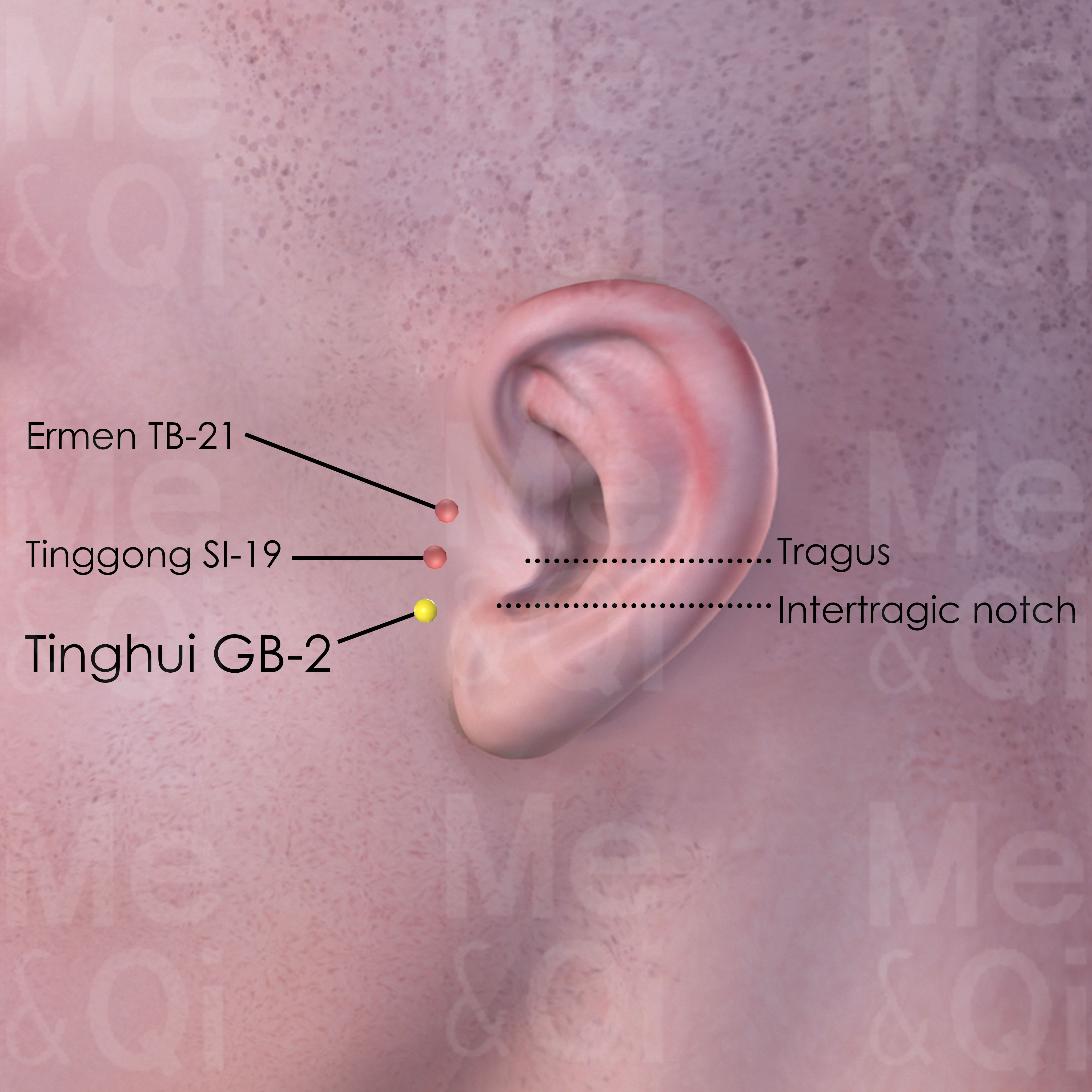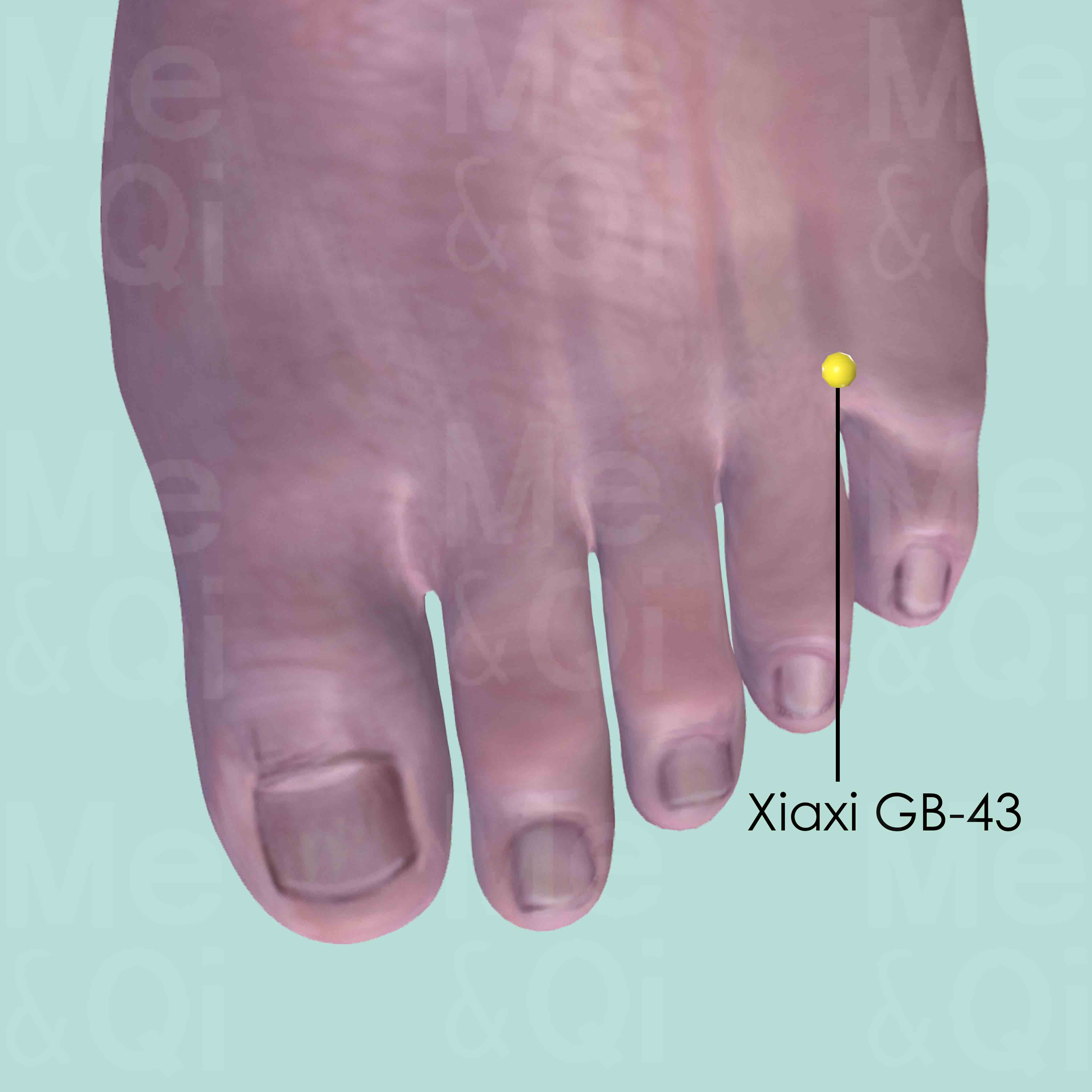Otitis Mediaaccording to TCM
Symptom family: Ear Disorders and Symptoms
Parent symptom: Otitis
Sub-symptom(s): Chronic Otitis Media Acute Otitis Media
What is Otitis Media?
Otitis media is an infection or inflammation of the middle ear that often arises after a cold or respiratory infection. It can present as either acute, with rapid onset and significant pain, or chronic, where the condition persists or frequently recurs, sometimes with fluid persistently trapped behind the eardrum. It is a common ailment, particularly in children, and can lead to symptoms such as earache, fever, and hearing difficulty.
How does TCM view Otitis Media?
Traditional Chinese Medicine (TCM) approaches otitis media as a manifestation of imbalance within the body's energetic system. The ear is viewed as a convergence point for Channels that connect to internal organs, so ear health is intricately linked to the overall Qi (vital energy), Blood, Yin, and Yang of the body.
TCM recognizes that identifying the root pattern of disharmony, which could be an Excess, Deficiency, or Stagnation of these energies, is essential in selecting the appropriate treatment strategy.
Causes of Otitis Media According to TCM
In TCM, the causes of otitis media are often attributed to external pathogenic factors like Wind, Heat, or Cold invading the meridians that reach the ear. For example, Wind-Cold may obstruct the ear's Channels, leading to the typical symptoms of an ear infection.
Conversely, Heat can cause inflammation and pain. Recognizing these patterns is critical, as they guide the practitioner to the appropriate therapeutic approach, whether it involves expelling Wind, clearing Heat, resolving Phlegm, or tonifying the Qi and Blood to strengthen the body's resistance.
TCM Herbal Formulas for Otitis Media
The selection of TCM formulas and herbs for otitis media is tailored based on the identified pattern. For Wind-Cold invasions, formulas like Ge Gen Tang, which utilizes the properties of Kudzu Roots, can be effective in expelling the Cold and releasing the exterior. In cases of Wind-Heat, Jing Jie Lian Qiao Tang, with its pungent and neutral properties, may be used to clear Heat and dispel Wind.
Shi Wei Bai Du San could be applied when Toxic-Heat is present, indicating a more severe and possibly infectious condition. Each formula is carefully chosen to address the specific type of imbalance causing the otitis media.
Explore below some TCM herbal formulas used to address otitis media, organized by formula type.
- By Formula Type
- Formulas that clear wind-Cold
- Formulas that clear wind-Heat
- Formulas that clear external abscesses and sores
- Formulas that secure irregular uterine bleeding and stop vaginal discharge
- Formulas that clear qi-level heat
- External formulas for external disorders
- Formulas that warm the middle and dispel cold
Formulas that clear Wind-Cold
Otitis media can be treated by these formulas when it stems from external pathogenic influences characterized by cold and wind symptoms.
One such formula is Ge Gen Tang, with kudzu root as a key herb.
Other formulas of this category are listed in the table below.
All "formulas that clear wind-Cold" recommended for otitis media
| Formula | Key herbs |
|---|---|
| Ge Gen Tang | Kudzu Roots (Ge Gen) |
| Ma Huang Tang | Ephedra (Ma Huang) |
Formulas that clear Wind-Heat
Otitis media can be treated by these formulas if it originates from a wind-heat invasion.
One such formula is Jing Jie Lian Qiao Tang, with japanese catnip as a key herb.
Formulas that clear external abscesses and sores
Otitis media can be treated by formulas that clear external abscesses and sores if it is due to localized infections or inflammations on the skin.
One such formula is Shi Wei Bai Du San, with saposhnikovia root as a key herb.
Formulas that secure irregular uterine bleeding and stop vaginal discharge
Otitis media can be treated by these formulas when it arises from disharmony in the female reproductive system, resulting in symptoms like irregular bleeding or abnormal discharge.
One such formula is Wan Dai Tang, with atractylodes rhizome as a key herb.
Formulas that clear Qi-level Heat
Otitis media can be treated by these formulas when it results from an intense heat condition at the qi level, affecting the body's energy flow.
One such formula is Zhi Zi Chi Tang, with cape jasmine fruit as a key herb.
External formulas for External disorders
Otitis media can be treated by these formulas if it is caused by external factors like wind, cold, or heat leading to symptoms on the body's surface.
One such formula is Bing Peng San, with borneol as a key herb.
Formulas that warm the middle and dispel Cold
Otitis media can be treated by these formulas when it is due to cold in the middle jiao (digestive region), necessitating warming and cold-dispelling actions.
One such formula is Huang Qi Jian Zhong Tang, with milkvetch root as a key herb.
Acupoints for Otitis Media
TCM also incorporates acupuncture as a treatment modality for otitis media. Points like Tinghui GB-2, located anterior to the intertragic notch, are selected for their effectiveness in benefiting the ears and expelling Wind.
Xiaxi GB-43, found between the toes, can be useful in subduing Liver Yang and expelling Damp-Heat. These points are stimulated to open up the meridians, alleviate pain, and address the underlying disharmony contributing to the ear infection.
Explore below some acupoints used to address otitis media, organized by meridian.
- By Meridian
- Gall Bladder Channel

Tinghui GB-2
Anterior to the intertragic notch, directly below Tinggong SI-19, at the posterior border of the condyloid process of the mandible.
TCM Herbs for Otitis Media
Explore below some TCM herbs used to address otitis media, organized by herb category.
- By Herb Category
- Tonic herbs for qi deficiency
- Warm/Acrid herbs that release the exterior
- Cool/Acrid herbs that release the exterior
- Herbs that clear heat and relieve toxicity
- Herbs that clear heat and purge fire and/or clear summer heat
- Herbs that open the orifices
- Herbs for external application
Tonic herbs for Qi Deficiency
Otitis media can be treated by these herbs when stemming from a lack of vital energy or Qi, helping to boost energy and overall vitality.
One such herb is Atractylodes Rhizomes (Bai Zhu), a key herb in some formulas recommended for otitis media, like Wan Dai Tang.
Other herbs of this category are listed in the table below.
"Tonic herbs for Qi Deficiency" recommended for otitis media
| Herb | Formulas they belong to (if applicable) |
|---|---|
| Atractylodes Rhizomes (Bai Zhu) | Wan Dai Tang |
| Yam (Shan Yao) | Wan Dai Tang |
| Milkvetch Roots (Huang Qi) | Huang Qi Jian Zhong Tang |
| Maltose (Yi Tang) | Huang Qi Jian Zhong Tang |
Warm/Acrid herbs that release the Exterior
Otitis media can be treated by these herbs when there is a need to dispel external cold and warm the body, especially in cases where there is insufficient Yang energy internally.
One such herb is Japanese Catnip (Jing Jie), a key herb in some formulas recommended for otitis media, like Jing Jie Lian Qiao Tang.
Other herbs of this category are listed in the table below.
"Warm/Acrid herbs that release the Exterior" recommended for otitis media
| Herb | Formulas they belong to (if applicable) |
|---|---|
| Japanese Catnip (Jing Jie) | Jing Jie Lian Qiao Tang | Shi Wei Bai Du San |
| Ephedra (Ma Huang) | Ma Huang Tang |
| Saposhnikovia Roots (Fang Feng) | Shi Wei Bai Du San |
Cool/Acrid herbs that release the Exterior
Otitis media can be treated by these herbs when the body needs to harmonize with external environmental changes, particularly when there's a need to expel pathogenic factors like wind or cold without overly cooling the body.
One such herb is Kudzu Roots (Ge Gen), a key herb in some formulas recommended for otitis media, like Ge Gen Tang.
Herbs that clear Heat and relieve Toxicity
Otitis media can be treated by these herbs if it arises from internal heat and toxic accumulations, aiding in detoxification and cooling the body.
One such herb is Forsythia Fruits (Lian Qiao), a key herb in some formulas recommended for otitis media, like Jing Jie Lian Qiao Tang.
Herbs that clear Heat and purge Fire and/or clear Summer Heat
Otitis media can be treated by these herbs when it arises from excessive internal heat or fire, aiding in cooling the body and balancing internal temperature.
One such herb is Cape Jasmine Fruits (Zhi Zi), a key herb in some formulas recommended for otitis media, like Zhi Zi Chi Tang.
Herbs that open the Orifices
Otitis media can be treated by these herbs if it's a result of blockages in the body's sensory orifices, aiding in restoring clarity and consciousness.
One such herb is Borneol (Bing Pian), a key herb in some formulas recommended for otitis media, like Bing Peng San.
Herbs for external application
Otitis media can be treated by these herbs when the condition is external or superficial, requiring topical treatment to alleviate symptoms or heal the affected area.
One such herb is Borax (Peng Sha), a key herb in some formulas recommended for otitis media, like Bing Peng San.

